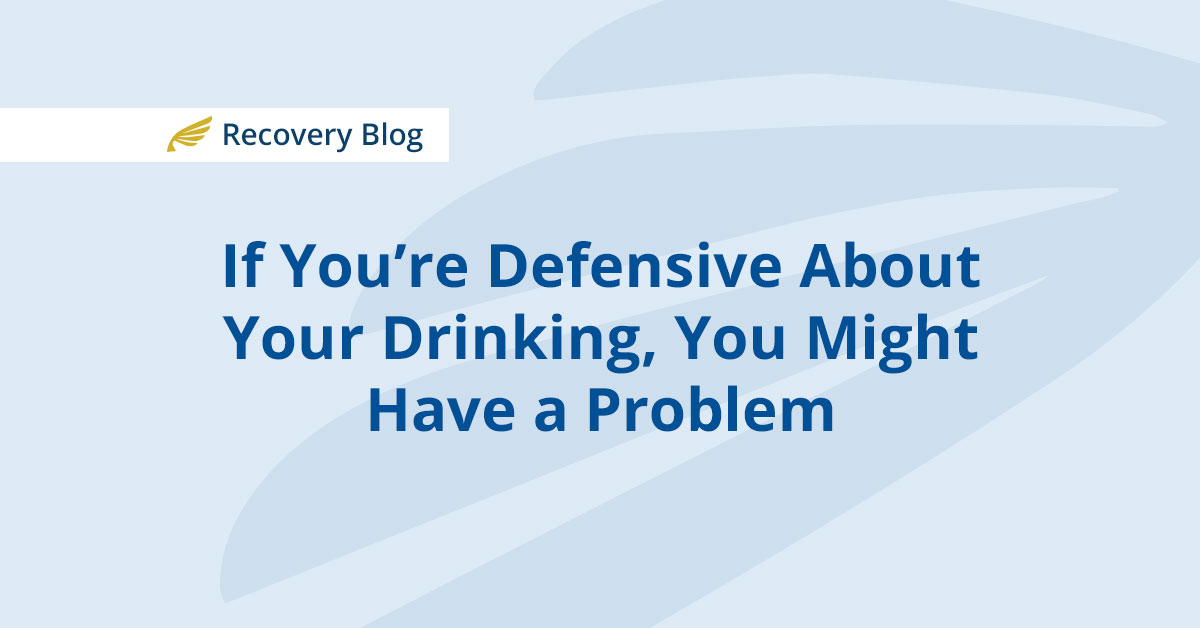How Alcohol Affects Your Mental Health
We’re committed to breaking the stigma around mental illness and alcohol use disorder. Since...
10 min read
By: Russ Kallina on Jul 28, 2025

Has anyone ever accused you of having a drinking problem? Perhaps it was a well-intentioned friend or colleague who made a “joke” that felt like it was directed at you or a family member who outright called you an alcoholic?
 It probably felt pretty awful. Thinking, or even knowing, that someone you love or respect thinks your drinking or drug use is out of control and needs to be addressed might make you feel angry or even ashamed. You may have used various defense mechanisms to deny or hide your drinking.
It probably felt pretty awful. Thinking, or even knowing, that someone you love or respect thinks your drinking or drug use is out of control and needs to be addressed might make you feel angry or even ashamed. You may have used various defense mechanisms to deny or hide your drinking.
If someone has accused you of having a problem with drugs or alcohol and you’ve been defensive or angry about it, however, they might be right.
Most people struggling with problems that they aren’t dealing with will get defensive when confronted. It’s a normal response to be defensive. If you are worried that talking about your drinking might lead to having to go to rehab or quit drinking, and you’re not ready to take that step, you’re going to find a way to get out of the discussion.
Getting defensive when someone questions your alcohol use habits is a natural human reaction. It often stems from a fear of losing control or facing the possibility that you might actually have a problem.
You might minimize the amount you drink, rationalize your behavior by pointing to stressful situations, or even lash out at the person expressing concern. These reactions are all part of a defense mechanism designed to protect your ego and maintain the illusion that you're in control.
While getting defensive is a common human response, it's important to look deeper. Is your defensiveness rooted in a genuine belief that you have your drinking under control, or is it a way to avoid confronting a potential issue?
Instead of getting defensive about your drinking, consider these potential warning signs of problematic drinking that may indicate you could use some help:
As hard as it is to talk openly about your substance use, it’s even harder on you and those around you to continue to deny or deflect the topic.
When you deny the issue outright, change the subject, or escalate your anger about their concerns, you create chips in your relationship's foundation. You may stay standing for now, but at some point, that foundation will collapse.
It is very common for someone who is defensive to twist the facts to distort reality or turn everything back on the other person.
If you’re trying to ‘win’ the argument by shifting the blame or trying to get sympathy by playing the victim, it should be a warning sign to you that you’re not really addressing the topic at hand. You might stop the current fight, but the war is not over.
When accusations first start to surface, they may seem ridiculous. In your mind, you do not have a problem. Sure, you have a few drinks to unwind, but who doesn’t? Drinking actually improves your wit, lets you complete those projects, and helps you reach deadlines. With the stress you face daily, you deserve it, right?
If you feel this way at all, you should stop and reflect on how much you are actually drinking and whether or not it is impacting your relationships with your family, your friends, or your colleagues. If you’ve ever denied that you have a drinking problem, you may be in denial of the impact that your substance use is having on your life and the lives of your family.
This is especially difficult for people who are high-functioning alcoholics. They can hold down a job, excel in academics, and provide for their family, all while still over-consuming alcohol.
According to Psychology Today, a high-functioning alcoholic's success feeds their denial that they may have a problem. "They believe that their drinking only impacts themselves, that they deserve to drink because of their hard work or stress, and that if their life appears 'put together' on the outside, they are entitled to keep drinking."
If this sounds even remotely familiar, it might be time to talk to an unbiased addiction treatment specialist for a no-commitment consultation. There is no shame in reaching out to ask for help or to talk about what some options for alcohol treatment might be to quit or cut back on drinking. It might be the most important call you’ll ever make.
We’re committed to breaking the stigma around mental illness and alcohol use disorder. Since...
If you pine for a cold one, a decantered one, or one on the rocks after a busy day at the office,...
Many people think that alcoholism and alcohol addiction are characterized by drinking heavily to...